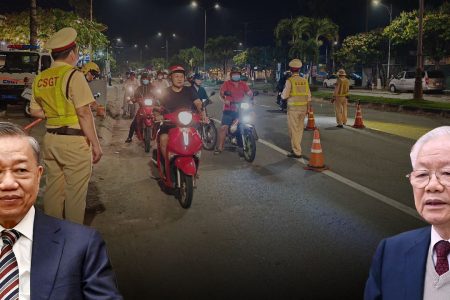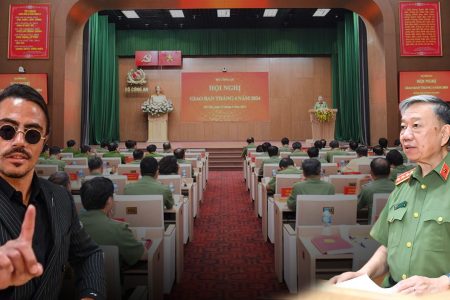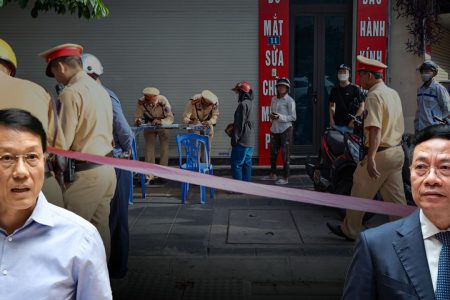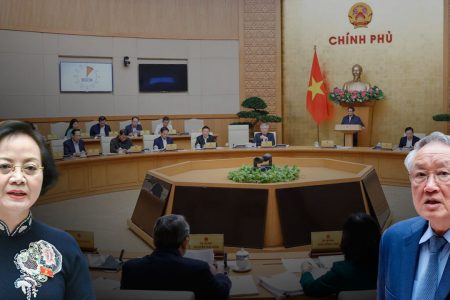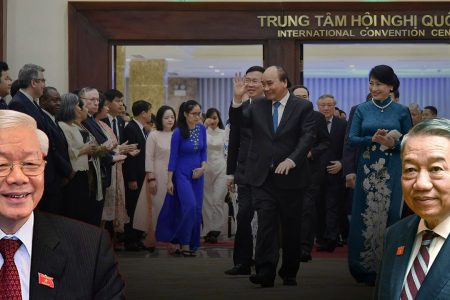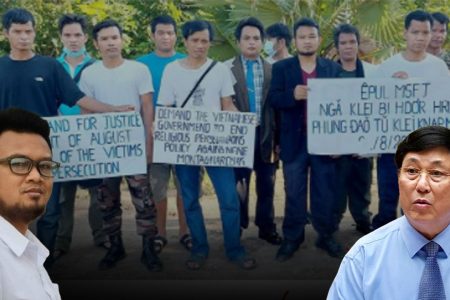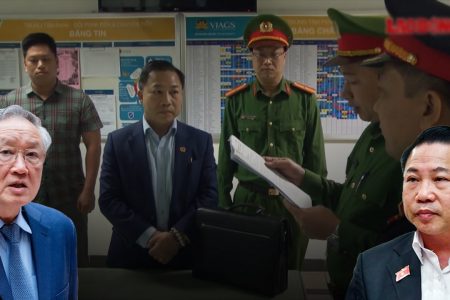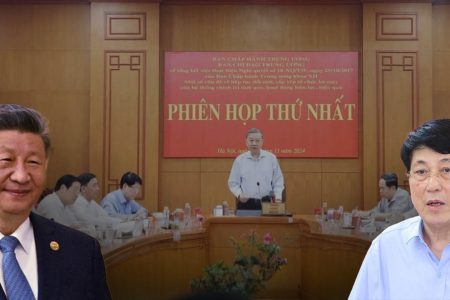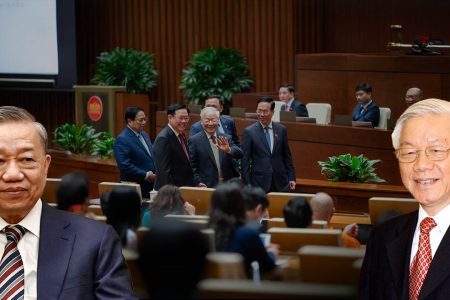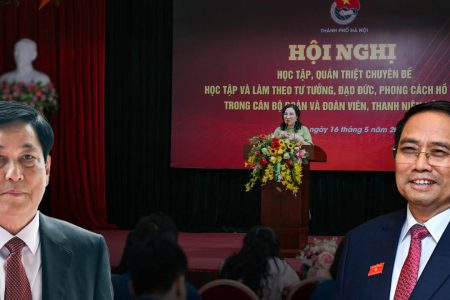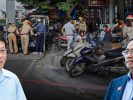
“Vietnam has a lot of progress, belongs to the group of countries with good results” is the common comment of two American professors when talking about their research results through the RISE project. The news was widely quoted by Vietnam’s state-controlled media on January 24.
RISE is the name of a research program to improve the education system for countries, conducted in Vietnam by two experts from the University of Minnesota in the US, Dr. Paul Glewwe and Dr. Joan Dejaeghere, in Vietnam for the past 5 years.
RISE’s aim is to explore the development and outcomes of teaching policies that influence general education from primary to middle school and high school in that country.
According to Professor Paul Glewwe, in terms of PISA, which is the result of international student assessment, it can be seen that Vietnam still maintains its development momentum. Since 2018, he said, Vietnam has always been in the group of countries with good results.
There are a few things that need to be clearly discussed about the appreciation of Vietnamese education among the top-performing countries, which is the opinion of Dr. Nong Duy Truong, who chaired and operated the ICEVN network at the Vietnam Citizen Academy in Texas, USA.
He said that if only using data about PISA (Program For International Student Assessment), which is the program to determine the ability of international students to perform from 2000 but Vietnam has participated since 2018, then maybe not very accurate:
“PISA has exams every 3 years. The first exam included 15 countries and by 2018, 79 countries participated, including Vietnam. To say that from 2018 Vietnam has always been in the countries with good results, there are 2 things to say. First, how good the results are, is not clearly stated in how many countries it ranks? Second, does this PISA exam really measure educational progress?”
Still, according to Nong Duy Truong, PISA is an exam that includes students from 15 years old and above, the three main subjects are Reading, Math and Science, to see if these 15-year-old students can apply knowledge of those three subjects into real-life situations or not.
“When PISA evaluates such possibilities, it cannot be used to evaluate other possibilities. It is inaccurate to say a country’s educational attainment will increase when there is progress in which students can score high.”
“In other countries, people use computers so they publish the results via computers. Countries like Argentina, Jordan, Lebanon, Moldova, Macedonia, Romania. Saudi Arabia, Ukraine, and Vietnam still take the exam by paper.”
“As I find out, in the 2018 exam Vietnam ranks 13th in reading, 24th in Mathematics and 4th in Science. With 3 such points, it is not known how to rank in the ranking of results to compare.”
Therefore, using PISA results as evidence or a tool (instrument) to measure the progress of education in Vietnam over the past 5 years is not very good, according to Dr. Nong Duy Truong.
According to Dr. Joan DeJaeghere, co-author of the RISE research program – a project to improve the education system for Vietnam – general education is a very important step forward of Vietnam’s education in recent years.
In addition to achievements such as enrollment rates, graduation rates of basic education as well as achievement of outcomes, Dr. DeJaeghere also emphasizes the role and influence of teachers.
Although students’ academic performance is largely influenced by families, Ms. DeJeaeghere continued, the teachers at the school play a decisive role.
This assessment does not completely reflect the current state of Vietnamese education, is the mindset of teacher Pham Minh Hoang, who taught for many years at Ho Chi Minh City University of Technology:
“Low income causes negative effects in the life of Vietnamese teachers. As soon as the teachers finish classes, the teachers had to put their works for additional tutoring. Not all families have conditions for their children to take tutoring, but if they do not take extra classes, their academic achievement is not good. If teachers use it like pressure to force the students to take tutoring, that effect is not good at all.”
“The second point, 2 professors said the rate of High School in Vietnam is very high, over 90%, to say this is a good education, I cannot share that. The place where I live in France, with a passing rate of more than 70%, can I conclude that French education is worse than Vietnam?”
“Forcing them to study too much to have a high graduation rate is a matter of chasing achievement. The burden of studying too much, having to learn too much is not the right trend of good education in countries around the world.”

Another step of Vietnam’s education in the eyes of two experts Paul Glewwe and Joan Dejaeghere is a very high increase in the rate of students studying through the Internet as well as on television.
The chart released by the report shows that over 80% of students in big cities study online, followed by the Red River Delta 72 to 74%, the Southwest region 75.5%, the Northern mountainous region- 47.3%.
Teacher Pham Minh Hoang said he completely agreed with the high and low numbers about online learning in Vietnam:
“The comment is digital for online education, I admit these two professors are right. In Vietnam, the Internet penetration rate up to now is over 70%. Once I go to a temporary area like the countryside, I can catch WiFi or 4G very well.”
“This means that the State invests in infrastructure very well. If online learning is the trend now, it is clear that Vietnam has relatively sufficient conditions.”
From the University of Maine, USA, Professor Ngo Vinh Long also said that the chart comparing the digital regional differences in students’ online learning is the most positive and interesting point in the report of 2 University of Minnesota experts.
Professor DeJaeghere added that Vietnam is showing a shift towards the capacity development approach. She affirmed that this is a great effort of Vietnam to improve the quality of human resources in the integration context.
Sociologist Tang Thi Duyen Hong, director of the non-profit organization Coins For Change, said that there are still many controversial issues in Vietnam’s education, not all surveys or reports are surveyed with reality. To her, the reports on Vietnamese education by American experts are not convincing:
“I could not read all of that report, but with the quotes, we read from the newspaper, we can see that they did not specifically criticize, did not go into details, did not compare our country with other countries. The 0.05% difference is also a difference that must be dissected in all scientific reports but cannot be generalized. I feel the same way when I read the quotes of these professors in the newspaper, but if I read the full report, it might feel different.”
Commenting on Vietnam’s education in the next 5 years, Professor Paul Glewwe as well as Professor Join DeJaeghere emphasize that Vietnam’s education is on the rise and there will be many rapid changes.
With such progress, the two professors affirmed that Vietnam needs to immediately implement intensive research programs to be able to self-quantify the impact of policies on new measures being applied.
However, according to many people in Vietnam nowadays, there are still many shortcomings in Vietnam’s education that ‘reform’ has not been able to solve for many years.
Thoibao.de (Translated)




